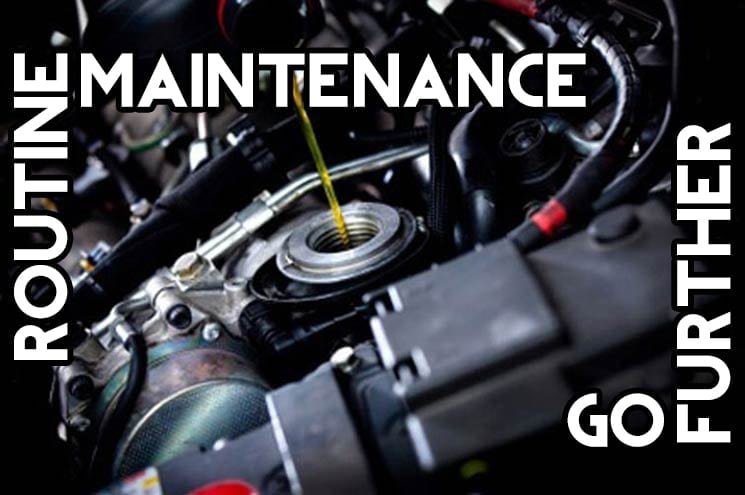Yes, all those lights that glow and flash on your instrument cluster do serve a purpose aside from making you scream on a Sunday morning when you’re trying to go grocery shopping. But, guess what? If you take care of your vehicle properly, you shouldn’t even see a check engine light, oil light, or battery light — unless something happens outside of your control. That’s where routine maintenance comes in, and for those of you who shrug off those three-month/3,000-mile oil changes, you should know you’re sending your vehicle to an early grave.
Oil changes are only a small part of a little something called routine maintenance, and your car can’t live without it.
Maintenance Prevents Bigger Problems
Just like we do our best to eat right, exercise, and live life stress-free to help prevent more complicated health problems, our vehicles need the same type of treatment. How do they get that treatment? Routine maintenance. Without it, your vehicle has a higher chance of developing some serious problems over the course of its life.
For example, if you don’t get your vehicle’s oil serviced regularly every three-months/3,000 miles, you allow dirt and grime to build up inside the engine. When it does come time for an oil change a year or two later (or whenever you decide to get it done), that grime and dirt will stay inside the engine unless you get it cleaned. The oil filter? Only way that works is to filter out any impurities, dirt, or sludge as the oil is passing through it. If it’s already in the engine, it’s too late. Furthermore, you might not find out you have engine trouble until it starts smoking on the road one day.
Apart from oil, getting your transmission fluid changed, antifreeze topped off, tires rotated and balanced, along with a host of all sorts of other tasks fall under routine maintenance.
Tasks to Do at Home
If you’re mechanically inclined, chances are you’ll be working on all this stuff yourself. If you aren’t, don’t worry — there are still plenty of things to do at home. Don’t wait three months for the mechanic you see to check your oil. Instead, check it at least once or twice a month to make sure the fluid level is right. That goes for your antifreeze, transmission fluid, and brake fluid as well. Make sure to pay attention to any weird noises you hear while driving, or any other weird sensations for that matter. Your car isn’t supposed to lurch when changing gears, and that could indicate a serious transmission problem.
Essentially, look at what needs to be checked regularly on your vehicle, and check it. Since specific routine maintenance can vary slightly from vehicle to vehicle, the best thing you can do is consult your service manual. That way, you not only know what needs to be worked on when, but also what you can monitor in the meantime to ensure your car is happy and healthy.
Please, don’t ignore your service schedule. If you are going to a certified dealership for service and they give you a suggested maintenance program, follow it to a T. Those technicians know your vehicle better than anyone, and they might have some insights that your owner’s manual doesn’t. If you don’t get a suggested schedule — say, because you bought a used car — then look at the owner’s manual and follow the suggested schedule within.



